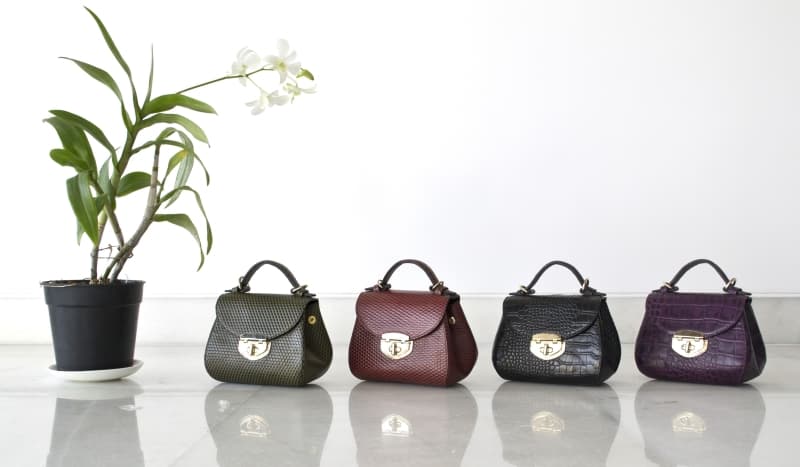What Is Vegan Friendly Leather?

Veganism has become increasingly popular as many see it as a more sustainable way to live. But clothing has often been a barrier to living a real vegan existence, so a new development this week, vegan leather could just change all that.
The Issues With Cow Hide
Many in the vegan camp have long argued that the use of real cow hide is not environmentally sound at all. Not only does a cow create greenhouse gases when alive but when its hide is used it also then gets transferred halfway around the world. There is therefore a great deal of excitement around the whole global faux leather market which is predicted to grow to $85bn by 2025.
Creating Vegan Friendly Leather
A number of companies are creating different products but one company, Modern Meadow has announced that its research into producing vegan friendly leather is well advanced. It is producing leather from yeast cells that are fermented to create collagen. The collagen is then manipulated into different structures so that it can be used in the fashion industry. In fact the company believes the product could be used in the future for far more than just the fashion industry but also for shoes, handbags, and car and plane interiors.
Vegan Fashion
Most would agree that there is definitely a market for vegan friendly leather. Stella McCartney is already using fungi in place of leather and also yeast proteins in place of silk. But there is also a belief that vegan products won’t just replace leather they will in fact improve on the quality of real leather. So for example if you are making the product rather than simply inheriting a product you can then ensure it has different properties. So for example vegan leather could be made more lightweight and also more breathable, than traditional cowhide leather.
What To Look For in Vegan Fashion
If you want to be sure what you are buying is vegan then look for the vegan trademark. This is an international symbol which will reassure you that no animal was harmed in the making of what you are buying. Other advice is always read the label very clearly. Common terms to look for include faux leather, all synthetic materials, man made materials, polyurethane, microfiber, cork and faux suede. Certain vegan websites can also help advise you on vegan friendly retailers and designers like peta.org and the vegan society.
Vegan Fashion Brands
As veganism becomes more popular it is getting easier to buy vegan freindly fashion. Brands include Beyond Skin, Save the Duck, Stella Mccartney, Unreal Fur and Wills Vegan Shoes.. It is worth pointing out though that not all brands are 100% vegan so do always check the label. Online retailers that sell vegan clothing include ASOS, Vegan Chic and Mooshoes.
What is Veganism?
A vegan is someone who does not eat or use any animal products. So this differs from vegetarianism in that a vegetarian doesn't’t eat meat or fish but can eat dairy, eggs and products like honey. It is becoming increasingly popular with the number of vegans in the UK estimated to be around 540,000 although some believe it could now be in the millions.
Why Has Veganism Become So Popular?
There are lots of reasons people become vegan. The obvious one in many ways is that many people are concerned about cruelty to animals. But it isn’t just about the meat and food its about farming techniques which many vegans feel are cruel to animals, hence the ban on using any animal produce. But there are other reasons.
Many now cite research from people behind the planet diet recently launched that veganism will benefit the environment. The science behind this argument is that livestock is currently responsible for 14.5% of greenhouse gases. So the more meat we consume and demand the worse greenhouse gas emissions could be. From a health perspective nutritionists agree that veganism is perfectly healthy but you will need to plan all food to ensure you get all the vitamins and minerals that are essential.
You Might Like
Ski Fashion
Why not check out the ski fashion on the slopes with our quick guide and article. From snowboarding to skiing, fashion on the piste!Buying Fashion Clothing Wholesale
Setting up a boutique, or want to make your current retail more profitable? Look at buying fashion clothing wholesale to maximise your returns.Family-Friendly Casinos?
Check out the family friendly casinos on offer in Las Vegas, Atlantic City and Macau.What is Veganism?
Is a vegan diet healthy, what is veganism and what are the areas of your diet you need to watch?How To Buy Fashion Clothing At Wholesale Prices
Want to grab a bargain? Read how you can buy fashion clothing at wholesale prices, with no defects, no problems, just cheaper.
Useful Websites
- purewine.co.uk
Mail order suppliers of organic, vegetarian and vegan wines throughout the UK - Vegetarian Society UK
Registered charity committed to the promotion of the ethical, health and environmental benefits of a vegetarian diet, recipes, research, information and products - EcoCities.Net
Everyday resources for a way of life that respects the environment, vegetarian, alternative health, conservation, wildlife, vegan, organic resources, information and links - Add Your Website Here